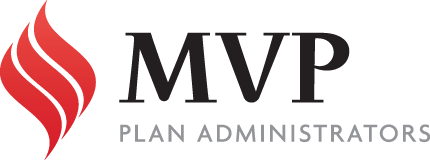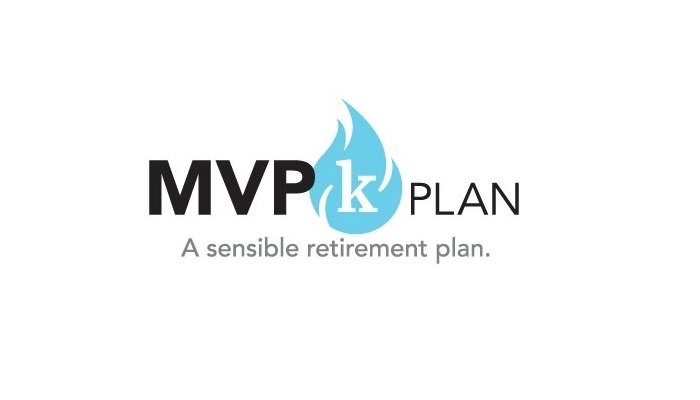MVP would like to wish you a happy New Year! This new year ushers in big changes in the retirement plan industry with passage of the SECURE Act at the end of 2019. The legislation, which is an acronym for Setting Each Community Up for Retirement Enhancement (SECURE), is shaping up to be the most extensive legislation enacted in the retirement plan industry since the Pension Protection Act of 2006.
While the changes to the law are far-reaching with varying applicability dates, there are still many unanswered questions regarding specific provisions of the legislation. The IRS and DOL should be issuing clarifying regulations for many of these provisions in the upcoming months. In the meantime, it is important to understand the changes that may affect your Plan and plan participants.
MVP will continue to monitor the regulations and administratively apply the regulations as necessary to ensure your plan remains compliant. There is nothing else for you to do at this time. Do note that your plan will need to be amended for the SECURE Act eventually, but the bill provides for a 2022 due date to adopt the interim amendment for these regulations. While the document will be available in a future year, many of the provisions can be applied administratively in the interim. Below are some of the provisions that you may find of most interest:
Safe Harbor 401(k) Plans:
- Current Rule: All safe harbor plans must provide a notice to employees annually before the start of each plan year and to new participants as they become eligible.
- New Rule: The safe harbor notice requirement has been removed for plans that utilize the safe harbor nonelective contribution. Plans that utilize the safe harbor matching contribution will still have to provide a notice.
- Current Rule: Adding a safe harbor provision to an existing 401k Plan can only be done prior to the start of a Plan Year.
- New Rule: An existing plan can be amended to add a safe harbor nonelective contribution feature even after the plan year has already started.
- Current Rule: A QACA 401k Plan (specialized type of safe harbor plan that utilizes an automatic enrollment provision with auto escalation) could escalate the default deferral rate for participants annually up to a maximum of 10% of eligible compensation.
- New Rule: The maximum default deferral rate in the auto escalation provision is increased from 10% to 15%.
- Effective for Plan Years beginning on or after 1/1/2020
Treatment of Long-Term, Part-Time Employees:
- Current Rule: 401(k) plans can require part-time employees to complete 1,000 hours of service and attain age 21 prior to becoming eligible for the retirement plan. Part-time employees can certainly be allowed to enter the plan with a shorter service period, but some employers choose to prolong the timing for part-time employees to be eligible to participate.
- New Rule: If an employee completes 3 consecutive years in which they work 500 hours per year and is at least age 21, they will need to be permitted to make salary deferrals into the plan. The employer is NOT required to provide an employer contribution such as matching, profit-sharing, and safe harbor. Additionally, the employee will be excluded from annual non-discrimination testing so they will not negatively impact testing results. Caution that if the employee does complete a full year of service period in which 1,000 hours are worked in a plan year, the employee will still become eligible for all portions of the plan, including employer contributions.
- Effective for Plan Years on or after 1/1/2021. The first service year for the 3-year requirement will start in 2021 with the first employees potentially becoming eligible under this rule in 2024.
Distribution Provisions:
- Current Rule: Required minimum distributions from a retirement plan must generally begin by April 1st following the year in which the participant turns age 70.5 or retires, if later. For employees who are considered owning greater than 5% of the business, the distribution must commence at age 70.5 regardless of the when they retire.
- New Rule: The age requirement has been increased from 70.5 to 72 for RMDs.
- Effective for employees who turn age 70.5 after 12/31/2019.
- Current Rule: Death benefits to a non-spouse beneficiary must generally be paid over the life expectancy of the beneficiary or paid in-full by the end of the 5th year following the year of death
- New Rule: The 5-year distribution period has been increased to a 10-year period. The life expectancy option has been eliminated with certain exceptions for spouses, children, and disabled beneficiaries.
- Effective for employee deaths after 12/31/2019
- Current Rule: N/A
- New Rule: Waiver of the 10% early withdrawal penalty on distributions up to $5,000 to cover expenses related to the birth or adoption of a child.
- Effective for births or adoptions after 2019
Increased Filing Penalties:
- Current Rule: The IRS penalty for late filing of the Form 5500 was $25/day up to a maximum of $15,000.
- New Rule: The IRS penalty for late filing of the Form 5500 increases to $250/day up to a maximum of $150,000.
- Current Rule: The IRS penalty for late filing of the 8955-SSA was $1/per unreported participant/day up to a maximum of $5,000.
- New Rule: The IRS penalty for the late filing for the 8955-SSA increases to $10/participate/day up to a maximum of $50,000.
- Effective for returns due after 12/31/2019.
Miscellaneous Additions:
- Tax Credit: Employers that add an eligible auto-enrollment feature to their plan will be eligible for a tax credit of up to $500 for each of the first three years that the provision is in place. This is only available to small employers who generally employ fewer than 100 employees. Effective for tax years after 12/31/2019.
- Tax Credit: An increase in the tax credit for start-up plans within the first three years of establishment. This is only available to small employers who generally employ fewer than 100 employees. Effective for tax years after 12/31/2019.
- IRA Contributions: The age 70½ limitation for deductible IRA contributions has been removed. Effective beginning 1/1/2020.
MVP will continue to monitor and inform you of additional guidance as it is made available. If you have any questions in regards to any of these provisions, or any other matter affecting your plan, please don’t hesitate to reach out to us. As always, we truly appreciate your business.






0 Comments